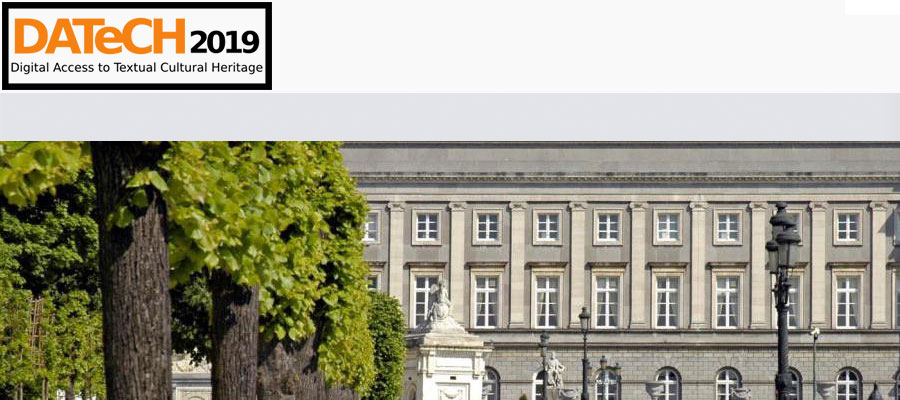DATeCH 2019, Royal Flemish Academy of Belgium for Science and the Arts, Brussels, May 8–10, 2019
The International DATeCH (Digital Access to Textual Cultural Heritage) conference brings together researchers and practitioners seeking innovative approaches for the creation, transformation and exploitation of historical documents in digital form. This interdisciplinary conference, takes place at the intersection of computer science, (digital) humanities, and cultural heritage studies.
The 3rd edition of DATeCH will take place at the Royal Flemish Academy of Belgium for Science and the Arts in the heart of Brussels, Belgium.
The conference aims to foster interdisciplinary work and the linking together of participants engaged in the following areas:
- Text digitisation, Optical Character Recognition (OCR) and Handwritten Text Recognition (HTR).
- Digital Humanities, Digital Cultural Heritage.
- Image and document analysis.
- Digital libraries, Library and Archival science.
- Museum and Heritage Studies.
- Applied computational linguistics.
- Crowdsourcing.
- Interfaces and human-computer interaction.
Topics of interest are all those related to the practical and scientific goals listed above, such as:
- OCR and/or HTR technology and tools for minority and historical languages, including dialects.
- Methods and tools for post-correction of OCR and/or HTR results.
- Document layout analysis, document understanding.
- Automated quality control for mass OCR and/or HTR data.
- Innovative access methods for historical texts and corpora.
- Natural language processing of ancient languages (e.g. Latin, Greek, Arabic, Coptic …).
- Visualisation techniques and interfaces for search and research in digital humanities.
- Publication and retrieval on e-books and mobile devices.
- Crowdsourcing techniques for collecting and annotating data in digital humanities.
- Enrichment of and metadata production for historical texts and corpora.
- Data created with mobile devices.
- Data presentation and exploration on mobile devices.
- Ontological and linked data based contextualisation of digitised and born-digital scholarly data resources.
